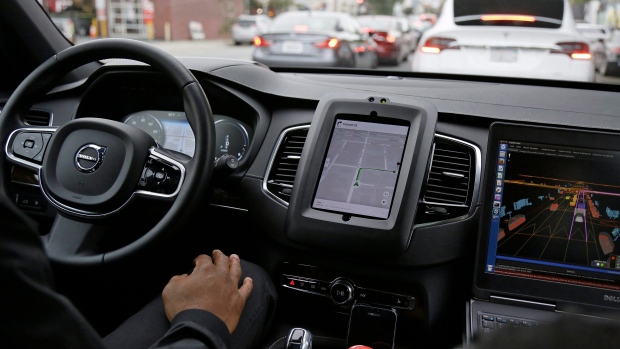Dec 20, 2018
Uber resumes self-driving car tests in Toronto nine months after Arizona crash

Uber’s self-driving cars are back on the streets of Toronto.
The ride-hailing company is resuming testing and development of its autonomous vehicles in the city Thursday morning — nine months after one of its driverless vehicles struck and killed a cyclist in Arizona, prompting Uber to suspend further tests.
The cars will be manually operated by a “mission specialist,” accompanied by another specialist in the passenger seat, who will be driving the cars on Toronto’s highways to further Uber’s research on “automatic mapping,” the company said in a release Thursday. Uber said that it will also resume manual driving of its self-driving vehicles in San Francisco and Pittsburgh.
Its self-driving vehicle testing program in Toronto will be used to collect data for artificial intelligence technology, automated mapping and mapless driving research. The company said its research and development team in Toronto are developing AI technology that enables its self-driving cars to map routes on the go, where maps are unavailable, in real-time.
The company says it hopes that technology will increase the safety of its autonomous vehicles.
“We need to develop technology that is always a safe fallback if something fails. So, say if the vehicle cannot localize, doesn’t know exactly where it is, we can use this technology to drive safely,” Raquel Urtasun, chief scientist and Toronto office lead for Uber Advanced Technologies Group, told BNN Bloomberg’s Jon Erlichman.
“We have to think of the safety component first and make sure that we do our best to minimize the risk of anything like the [Arizona crash] happening in the future.”
The company is also hoping its development of real-time mapping will allow it to scale its self-driving car business faster.
The old mapping process was “just too time consuming and too expensive,” said Urtasun, who is also a University of Toronto computer science professor and co-founder of the Vector Institute for AI.
“We can actually reduce this cost very, very significantly. And this is very important because we want self-driving cars to be available for everybody, not just for the rich.”
Uber also said it plans to double the size of its Toronto research team next year and will relocate its R&D hub to Bathurst College Centre, a four-storey building located in the city’s downtown.
“It’s more than 50 [people] right now, in the next year we’re going to grow past a hundred. And we will continue growing,” Urtasun said.
In September, Uber announced that is investing more than $200 million over five years in its self-driving research and development hub in Toronto. At the time, the company also announced plans to launch an engineering hub in Toronto in early 2019, which it says will create 500 jobs in the city.








